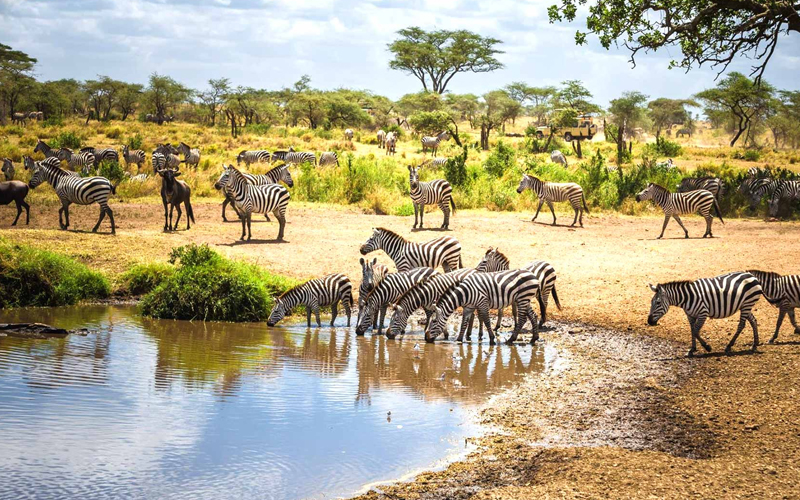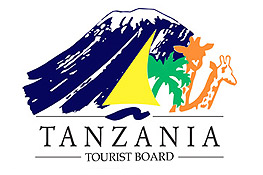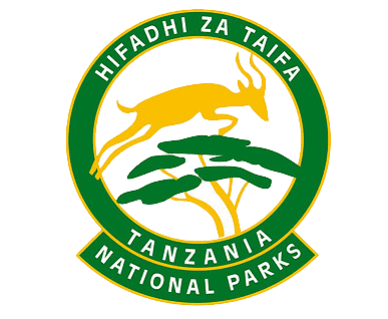Tanzania Safari Essentials
Choose the Right Time to Visit
- Best Safari Seasons: Tanzania’s safari seasons are typically divided into the wet and dry seasons. The dry season, from June to October, is ideal for game viewing as animals gather around water sources and vegetation is sparse. This period also coincides with the Great Migration in the Serengeti. The wet season, from November to May, brings lush landscapes and fewer crowds, but wildlife spotting can be more challenging due to the dense vegetation and occasional rains.
- Consider the Great Migration: If witnessing the Great Migration is a priority, plan your visit between June and October when the migration is typically in the northern Serengeti. This spectacular event involves millions of wildebeest, zebras, and gazelles moving in search of fresh grazing grounds.
Pack Wisely for Your Safari
- Essential Clothing: Pack lightweight, breathable clothing in neutral colors to blend in with the surroundings and stay comfortable in the heat. Long sleeves and pants are recommended for protection against the sun and insects. A wide-brimmed hat, sunglasses, and sunscreen are also essential.
- Footwear and Accessories: Sturdy walking shoes or hiking boots are crucial for any walking safari or hike. Don’t forget binoculars for wildlife spotting, a camera with extra batteries, and a good-quality backpack to carry your essentials.
- Health and Safety Items: Bring along a first aid kit with basic medications, insect repellent to ward off mosquitoes, and personal hygiene products. If traveling during the wet season, waterproof gear and anti-malaria medication are advisable.
Know the Local Etiquette
- Respect Wildlife: Always keep a safe distance from wildlife and avoid making loud noises or sudden movements that could disturb the animals. Follow the instructions of your guide to ensure both your safety and the animal’s well-being.
- Engage with Local Communities: Respect local cultures and traditions when interacting with communities. Dress modestly when visiting villages and seek permission before taking photographs. Support local artisans and businesses to contribute positively to the community.
Understand the Safari Experience
- Game Drives: Game drives are the most common way to experience wildlife on safari. They typically take place in open 4×4 vehicles with a guide who can provide insights into the animals and their behaviors. Drives are often scheduled early in the morning and late in the afternoon when wildlife activity is at its peak.
- Walking Safaris and Night Drives: For a different perspective, consider adding a walking safari to your itinerary. Accompanied by a trained guide, walking safaris offer a closer look at the flora and smaller fauna. Night drives are also available in some parks and provide opportunities to see nocturnal animals that are not visible during the day.
- Cultural Experiences: In addition to wildlife viewing, many safaris include visits to local communities where you can learn about traditional ways of life. These experiences offer valuable insights into the cultural heritage of Tanzania and its people.
Plan Your Itinerary
- Key Safari Destinations: Tanzania boasts several premier safari destinations, each offering unique experiences. The Serengeti National Park is famous for its vast plains and the Great Migration. The Ngorongoro Crater provides a stunning landscape with abundant wildlife in a caldera. Tarangire National Park is known for its large elephant herds and baobab trees, while Lake Manyara National Park offers diverse habitats and tree-climbing lions.
- Accommodations: From luxury lodges to budget campsites, Tanzania offers a range of accommodation options. Choose accommodations based on your preferences for comfort, proximity to wildlife, and the level of service you desire. Booking well in advance is recommended, especially during peak seasons.
Prepare for the Unexpected
- Weather Conditions: Be prepared for varying weather conditions. While the dry season is generally warm and sunny, temperatures can drop significantly in the evenings and mornings. During the wet season, expect occasional showers and muddy conditions.
- Travel Insurance: Travel insurance is essential for covering unexpected events such as trip cancellations, medical emergencies, or lost luggage. Ensure your policy includes coverage for safari-related activities and emergencies.
- Emergency Contacts: Keep a list of emergency contacts, including your safari operator, local embassy or consulate, and any medical facilities in the area. Familiarize yourself with emergency procedures and safety protocols for your safari destinations.
Financial Considerations
- Budgeting for Your Safari: Safaris can be a significant investment, so it’s important to budget accordingly. Costs typically include accommodation, park entry fees, transport, and guided activities. Research and compare prices to find options that fit your budget while providing the experience you want.
- Currency and Payments: The local currency in Tanzania is the Tanzanian Shilling (TZS). While major cities and tourist areas accept credit cards, it’s wise to carry some cash for smaller purchases and tips. ATMs are available in urban areas, but it’s advisable to withdraw cash in advance of remote safaris.
A safari in Tanzania offers an unparalleled opportunity to witness breathtaking wildlife, stunning landscapes, and rich cultural experiences. By preparing thoroughly and understanding what to expect, you can ensure a smooth and memorable adventure. Pack wisely, respect local customs, and plan your itinerary to make the most of your Tanzanian safari.
FAQs
1. What is the best time to go on a safari in Tanzania? The best time for a safari in Tanzania is during the dry season from June to October. This period offers the best wildlife viewing conditions as animals gather around water sources and the vegetation is less dense. 2. What should I pack for a Tanzania safari? Pack lightweight, neutral-colored clothing, a wide-brimmed hat, sunglasses, sunscreen, sturdy walking shoes, binoculars, a camera with extra batteries, and personal health items. Waterproof gear is advisable during the wet season. 3. Is it necessary to have a guide for a safari in Tanzania? Yes, having a guide is highly recommended for a safari in Tanzania. Guides are knowledgeable about wildlife, local regulations, and safety procedures, enhancing your overall experience and ensuring your safety. 4. Are there any health precautions I should take before going on a safari? It is advisable to consult a travel health clinic before your trip to discuss vaccinations and malaria prevention. Carry a first aid kit and personal medications, and use insect repellent to protect against mosquito bites. 5. How much does a safari in Tanzania typically cost? The cost of a safari in Tanzania varies depending on factors such as the duration of the safari, type of accommodation and included activities. Prices can range from a few hundred to several thousand dollars per person. It’s best to research and compare options based on your budget and preferences. For a comprehensive Tanzanian travel experience, explore the following highlights on our site: Visit our page for detailed information and tips to plan your perfect Tanzanian adventure.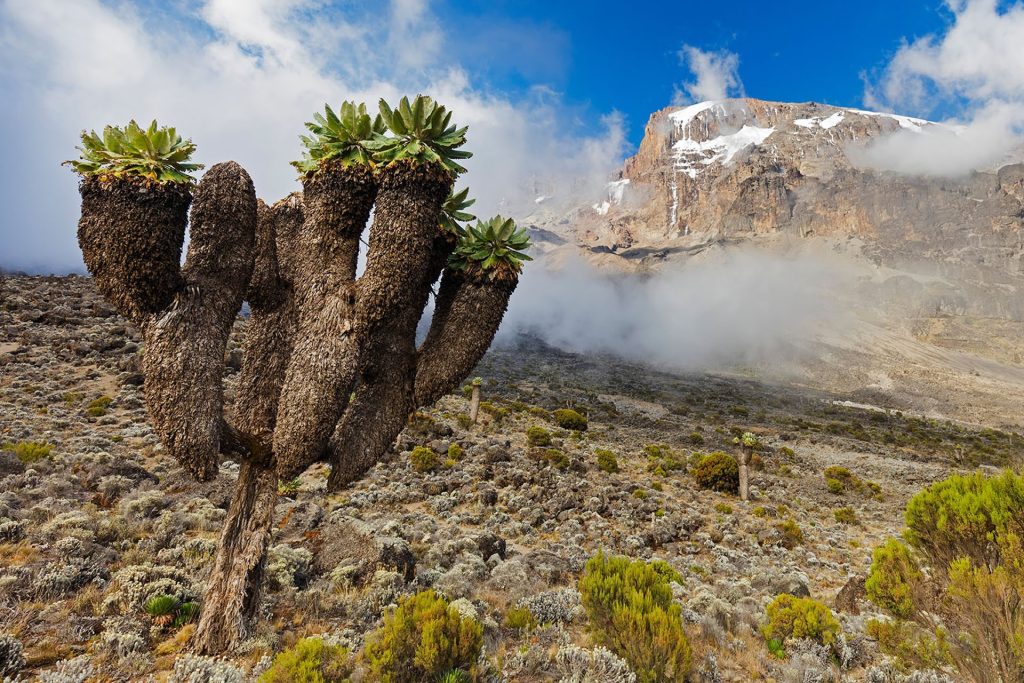
Kilimanjaro Climb
Book Hiking tours to Mount Kilimanjaro, The Roof of Africa, Best Prices Guarantee!
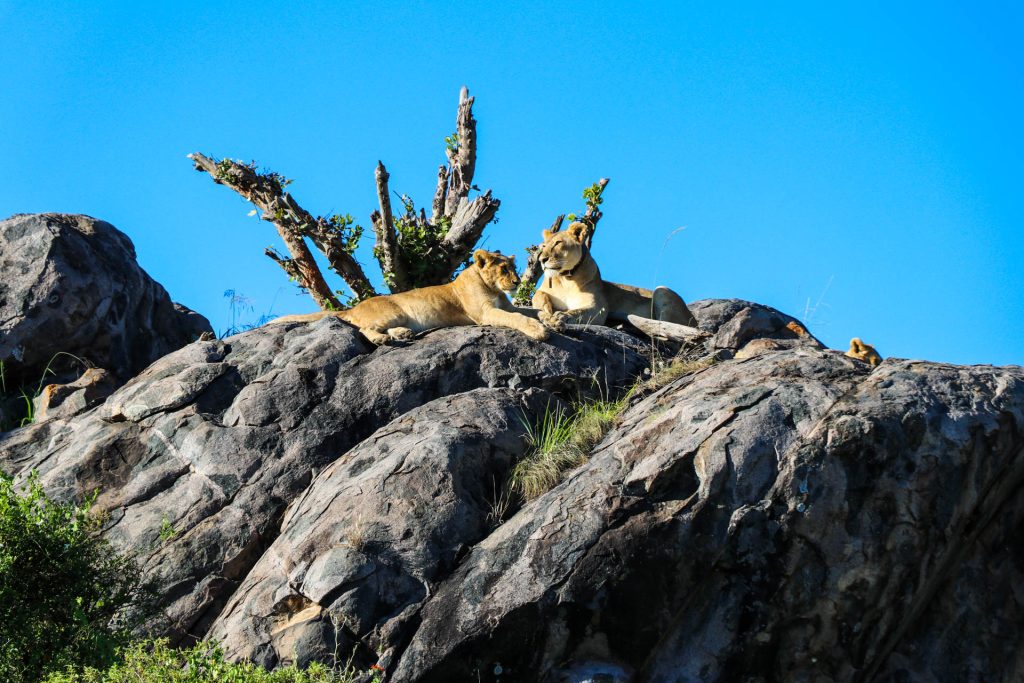
Tanzania Safari Vacations
Explore our Unforgettable Tanzania Budget, Mid-Range & Luxury Wildlife Safari.
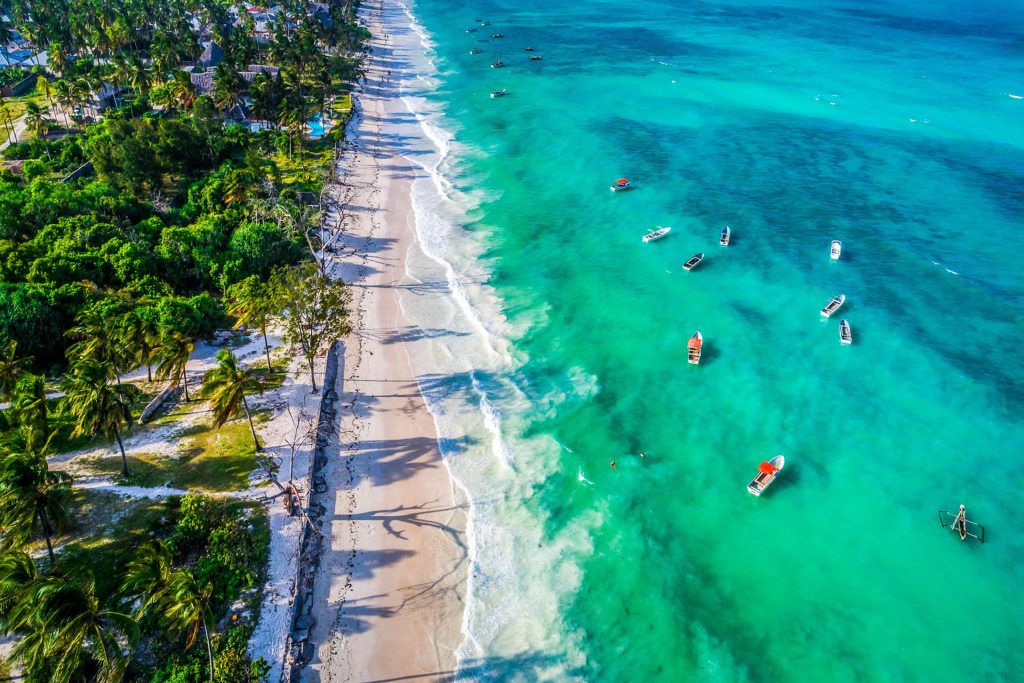
Beach Excursions
Visit Zanzibar Island and Coastal Tanzania for beach tours before and after a climb or safari.
ABOUT BOKER ADVENTURE…
Boker Adventure is a Tanzania Tours company located in Moshi town along the slope of Mount Kilimanjaro committed to offering local experiences such as Mount Kilimanjaro climbing experiences, Tanzania Wildlife Safari Experiences, Tanzania cultural tourism, bike tours, honeymoon, Air Ticketing and beach holidays. At Boker Adventures, we offer you a unique and comprehensive selection of Tanzania Private tours that are tailor made to suit your schedule and budget.
Please give us an opportunity to organize your African dream holiday!.


